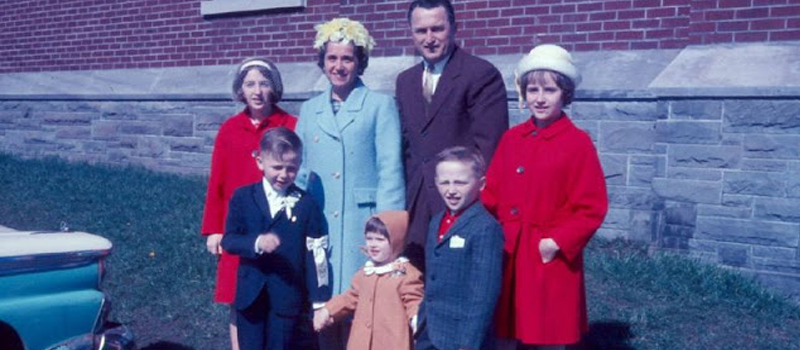“Everyone who lives in the city is going to die when the SHTF.”
It roils me a bit when I read that, and not because I live so close to a city, but it just isn’t true. Wherever you live, in good times and bad, there are pros and cons. Your job is to prepare yourself and those around you to maximize your chances at any time for you to flourish and survive. You need to concentrate on the positive aspects of your location while taking steps to minimize the negative aspects.
The chances of those who live in the suburbs are plentiful and have the best of both the city and the countryside.
Although the mindset of those living in a rural community is, by necessity, more oriented toward self-reliance, the odds are there are far more living in the suburbs and cities where it has been convenient to run to a store or have a government entity take care of one or another essential utility. When it comes to the subject of staying put or bugging out there are several things you must consider.
In a time of non-catastrophe, there are many reasons that relocating is impractical for lots of folks who live in urban areas. Here are a few:
- Elderly family members they care for who aren’t able to relocate
- Young children and their needs, educational and more
- Health concerns/medical care
- Jobs – in this economy it is a bold move to let a sure thing go
- Owing more on a mortgage than you can sell your house for
- Legal reasons that are family related
- The expense of a major relocation
When you think of it, there is a lot more that goes into living rurally than meets the eye. Let alone establishing your own utilities (Water, power -propane or other – and your septic system) but also any equipment needed, any buildings, tools, and vehicles. Any new improvements on the land are on your shoulders, not on the local municipality. So while the internet may act as though “moving” is an easy solution, there’s a lot more to it.
Each setting (rural, suburb, city) has its pros and cons and those who are self-reliance minded no matter where they live can access each of those benefits of where they live. Because you don’t know the circumstances of others, it’s never a good idea to put others down on where they live. While you may be very happy with your current location, that doesn’t actually mean it’s better than other locations. Comprehensive prepared planning can make a home in the suburbs or city safe and well-stocked.
A side note to those who find themselves in less than ideal places of residence (according to what and where they feel they need to be) it is for them to work themselves into those places and set of circumstances to where they truly want to be. In the meantime, whether you live in a place with authoritarian laws, high population density, not enough space for self-reliance activities, or unfortunate weather conditions, the fact remains: you need to make the best of where you are. Every place on the planet has pros and cons.
You must keep in mind, and alter your preparation activities to the uniqueness of where you are: be it crippling cold, blazing heat, drought, tornadoes, or hurricanes. Chemical spills can taint water supplies anywhere. Riots and civil unrest can occur outside of the big city. There are many things you can do to create a viable preparedness plan wherever you happen to live. With some pre-planning, there is a lot you can overcome if you have the right mindset.
Just stop waiting until you move to the perfect location. Make preparations for the situation you have, not the situation you want.
The Pros of Living in a Suburban Location
Suburban locations are not without their benefits. Here are a few pros for areas with higher populations.
1. There is the ease of availability for supplies.
If you live out in the middle of Katmandu, a stock-up trip takes a lot of time and planning. In a Pre and Post SHTF event in the ‘Burbs there are plenty of places to get supplies on short notice, it’s just a factor of the risk to get them and the price you pay.
2. A higher population means that you are less likely to have to go it alone.
Good neighbors can be a blessing. Also if you are active in your local church there will be safety in numbers. People that you could trust more readily when push comes to shove. In the event of civil unrest, your community can band together to combine skills and keep the neighborhood safe.
That goes for safety, for resources and sometimes for food. Borrow some sugar anyone?
3. In an all-out disaster scenario, there are more resources for scavenging.
I’m not talking about a short-term incident of civil unrest with people looting televisions. But once you realize a situation has become long-term and that the way we lived before has ended, you may decide that it’s time to make a supply run to places which have been abandoned.
4. Smaller living spaces are easier to protect.
Having a large spread, can be difficult to protect. When it comes to a non-descript housing it can be lost in the mix. A well-fenced suburban lot can be adequately guarded by only 1 or 2 people. With some creative planning, you can be far more self-reliant than you would imagine in small spaces.
5. Suburban areas are less likely to deal with specific situations.
Although fires are a thing everywhere, uncontrolled burns usually don’t happen in the ‘Burbs. As well, there are a number of animal predators the further you get from civilization. Additionally if you were to encounter a medical emergency, it takes someone in the country substantially longer to get help than it does someone in the city.
The Cons of a Suburban Environment
The equation of the pro and con factors are numerable and you need to decide what you are willing to live with.
Here are a few negative points to suburban living:
1. When you live in the city, you’re more easily contained and controlled.
It’s easier for you to suffer a lockdown (New York City with De Blasio?) In the event of a martial law scenario, you will be far easier to corral if you are one of the people densely packed in an area that can be road blocked and guarded. You are subject to what can be brought in or taken out.
2. Larger population means more competition for potentially limited resources.
While there are more resources to be had in an suburban area, there are also more people looking for those resources. And if your ‘neighbors’ aren’t the friendly type then there is an elevated risk factor that comes into play. You either have to be early and get them before someone else does, or you must be more forceful than the other people going after those supplies.
3. The mob mentality can be very dangerous.
A mob mentality can be contagious. We’ve seen and read about it numerous times. Add hunger, fear, and desperation into that mob and it can be extremely deadly, even to those in the mob itself. Ideally, for your survival you want to avoid those types of situations.
4. Living in an HOA without direct access to the outdoors, it can be difficult to be self-reliant.
If you have a balcony or a small lawn area, you can manage to grow some food for yourself. However, if you live in a condo without any outdoor space at all, things get a lot trickier. Even if the HOA continued to function, having space to grow food, keep chickens, or utilize for any prep you are going to be behind the eight ball.
5. ‘Civilized’ life is expensive.
From the cost of utilities, taxes, prices of goods in stores, acquisition of materials… all are more expensive than living in a more wide open area. Though you don’t have any farm expenses, you do off-set that with paying for many of the conveniences we have in the suburbs.
The Overall TakeAway
The simple fact is, we live where we live, whether it is by choice or necessity. There are many more people in our country living in suburban and urban areas, and each place has its positives and negatives. Most of us weren’t born knowing how to be more self-reliant, and we when we wake up and see the light, we can’t change our entire lives overnight. Besides that, there are numerous issues that can keep us in a location regardless of whether or not it’s ideal.
Wherever you live, take steps now to make the best of it. Find resources, build your stockpile, and prepare. No place is perfect and we can all improve our chances, regardless of where we live.






